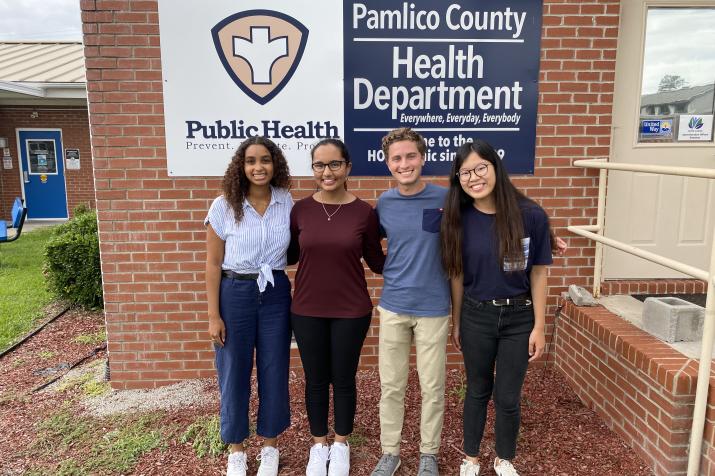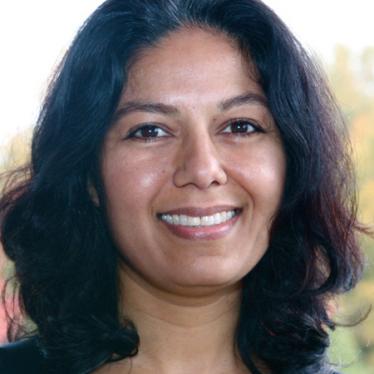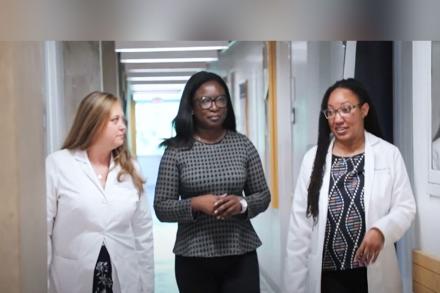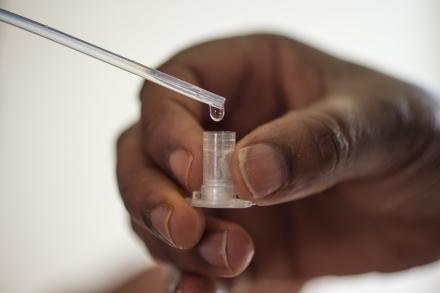At the Duke Global Health Institute, we recognize that health disparities exist everywhere, including high-resource environments, and share structural causes that can be addressed through multisectoral collaboration and bidirectional learning. The Local is Global doctrine holds that people everywhere are entitled to unfettered access to healthcare and resources. Health disparities exist in every environment and share similar root etiologies; structural violence and power inequities. Therefore, addressing health disparities in our own communities and fostering multi-country collaboration to address these shared challenges are essential to our mission.
Since the launch of the institute in 2006, DGHI faculty, students and staff have been involved in research, service and education activities in our home city of Durham, surrounding North Carolina communities, and the United States. In 2019, the institute formally recognized this commitment by establishing Durham as a Priority Partnership Location and appointing a faculty liaison to facilitate partnerships in Durham and surrounding North Carolina communities. This page highlights a few of the dozens of organizations that DGHI partners with in research, education and outreach programs to address health disparities and further health equity.
Faculty Liaison
Sumedha (Sumi) Ariely
Associate Professor of the Practice of Global Health
Sumedha (Sumi) Ariely, associate professor of the practice of global health, serves as faculty liaison for DGHI partnerships in Durham and surrounding communities. Students and faculty who are interested in conducting community-centered research on health disparities or engaging with community partners are encouraged to contact Dr. Ariely to discuss options for DGHI involvement. She also welcomes contacts from community partners who have research needs or are interested in working with DGHI students.
Engaging with Local Partners
For global health master’s students, undergraduate majors and minors, or clinical professional students interested in local opportunities for fieldwork or internships, contact Lysa MacKeen, DGHI’s assistant director for experiential learning.
For students, faculty and staff interested in learning more about our current projects with local partners, you can browse faculty and research projects on this site. If you have global health projects that connect to our Local to Global work or would like more information on current opportunities, contact Sumi Ariely.
Please consult with Lysa McKeen, Sumi Ariely and your Duke Faculty mentors to develop project practices and procedures that adhere to ethical, respectful and responsible engagement with community partners.
For students, faculty and staff interested in general opportunities to volunteer and engage with local partners, a great place to start is the Duke Civic Engagement office, which offers online resources and one-on-one consultation to help design effective, equitable and sustainable community-driven partnership. The ConnectCommunity page, maintained by the Duke Office of Durham and Community Affairs and Duke Civic Engagement, offers a list of current volunteer opportunities and needs submitted by organizations for Duke students, faculty and staff.
Projects
Many DGHI faculty are engaged in research and service projects with local community partners. These are examples of recent projects with notable impact in Durham and surrounding communities.
Education News
Moving from Surviving to Thriving
Students work to help address health disparities, disaster readiness in rural North...
Read More
Community-Based Organizations
Many organizations around Durham pursue health promotion through their work. The following are spotlight examples of organizations that have long-standing, sustained relationships in Durham and North Carolina. You can explore more community-based organizations in North Carolina on the OrganizeNorthCarolina.org website.
Trosa is an “innovative, multi-year residential program that empowers people with substance use disorders to be productive, recovering individuals by providing comprehensive treatment, experiential vocational training, education, and continuing care.”
Partnership for a Healthy Durham
“The Partnership for a Healthy Durham is a coalition of local organizations and community members with the goal of collaboratively improving the physical, mental, and social health and well-being of Durham’s residents.”
“NCCARE 360 is the first statewide network that unites health care and human services organizations with a shared technology that enables a coordinated, community-oriented, person-centered approach for delivering care in North Carolina.”
With a mission “to strengthen the community, build bridges, and advocate for equity and inclusion” El Centro Hispano aims to strengthen the Hispanic/Latino/Latinx community and advance people in North Carolina and beyond.
Duke Units Doing Local Work
Highlighted below are units affiliated with Duke University who are facilitating and engaging with local organizations to address health inequities. While not a comprehensive list, these units integrate community-engaged practices into their projects.
Duke Durham Community Affairs (DCA)
“Duke Durham Community Affairs (DCA) Forges Purposeful Partnerships with our Neighbors to Improve Health and Well-being in Communities. Through its engagement with communities via scholarship, service, and collaboration, Duke will build ongoing connections with reciprocity and equity that reflect the values of respect, trust, inclusion, discovery, and excellence.”
Center for Health Policy and Inequalities Research (CHPIR)
The mission of the Duke Center for Health Policy and Inequalities Research (CHPIR) “is to improve health of individuals and communities, locally, nationally, and internationally, by addressing health inequities through interdisciplinary policy-relevant research, interventions, and evaluations.” Their work falls under the pillars of education, research, and service with a focus on community-engaged work that supports marginalized or stigmatized populations.
The Duke Center for REsearch to AdvanCe Healthcare Equity (REACH Equity)
“The Duke Center for REsearch to AdvanCe Healthcare Equity (REACH Equity) addresses racial and ethnic disparities in health by developing and testing interventions to improve the quality of patient-centered care in the clinical encounter. REACH Equity is one of 12 centers funded by the National Institute of Minority Health and Health Disparities (NIMHD), part of the National Institutes of Health.”
Duke Clinical and Translational Science Institute (CTSI)
The Duke Clinical and Translational Science Institute (CTSI) aims to support researchers in translating their work to improve health. They offer a variety of resources, centers, projects, and institutes that are guided by their core values of trustworthiness, respect, diversity, learning, and teamwork. Their Community-Engaged Research Initiative “facilitates equitable, authentic, and robust community-engaged research to improve health.”


